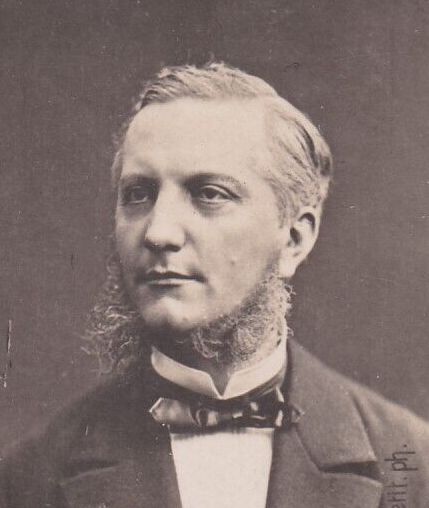Felix Guyon (1831 – 1920)
Born in Saint-Denis on the East African island of Reunion, a French overseas department east of Madagascar, on 21st of July 1831, Jean Casimir Félix Guyon (1831 – 1920) moved to France with his family at the age of three, first to Cherbourg then to Nantes. He studied medicine at the University of Paris, working initially in Nantes then in Paris where he was an intern in 1854, a prosector in 1858 and where he got his doctorate in 1858 (for a dissertation on the uterus). He then went on to become médecin des hôpitaux (consultant) in 1864. Thirteen years later he was the professor of surgical pathology and then another thirteen years later professor of genitourinary surgery at the University of Paris.
On 9th July 1867, Guyon succeeded Jean Civiale (1792-1867), the man who first successfully performed blind lithotrity, at the Necker Hospital in Paris. In 1824, Civiale had specifically allotted beds purely for urology patients at the Necker, creating, some would say, the first urology department. Guyon, by becoming the first Professor of Urology in the world and re-naming the department, ‘Service d’Urologie’ consolidated that and has become known as the father of modern urology.
Guyon’s urology clinics were attended by students and doctors from across the world, all learning about the ‘new’ speciality of urology. His trainees read like a ‘Who’s Who’ of famous urologists and included, Fernand Cathelin (1873-1945) who became chef de clinique under Guyon and later chief surgeon at the Hôpital d’Urologie, Joaquin Albarran (1860–1912) who succeeded Guyon as Chief of Urology at the Necker, Petre Herescu (1868-1915) who opened the first urology clinic in Romania, Félix Legueu (1863 – 1939), a subsequent SIU president, Ernest Desnos (1852–1925) and Alfred Pousson who were both instrumental in persuading Guyon to establish the SIU. The famous German urologist Jacob Israel (1846 – 1928) said of Guyon, “all the urologists of the world were his pupils”.
Guyon was made president of the Socitété de Chirurgie in 1878, of the Académie de Médecine in 1896, and of the Académie des Sciences in 1913. In 1896 Guyon founded the Association Française d’Urologie and in 1907, along with urologists from around the world helped to establish the Association Internationale d’Urologie (now the Societé Internationale d’Urologie (SIU)). Guyon was its first president from 1907 – 1914. In 1911, Felix Guyon was nominated for the Nobel Prize, although he did not win it. At the 18th Congress of the SIU in 1979, held once again in Paris, Guyon was honoured, by being portrayed on a French postage stamp.
Adapted from an article previously published in Urology News:
Kishor A, Goddard JC, Urologist in a chocolate box: Felix Guyon, Urology News, 28(2) 2024





